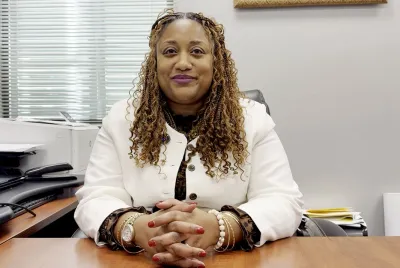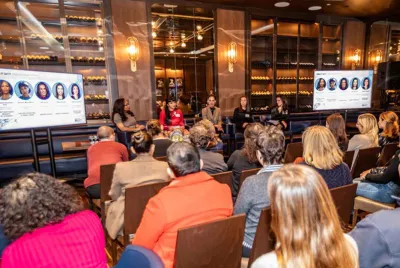New Funding Supports Children and Families in Latin America

As deep poverty, violence, and unstable governments force families in Latin America to flee their homes, thousands of people, especially children, are at risk of human trafficking. A new U.S. Department of State grant will empower children at Covenant House programs in Guatemala, Honduras, and Mexico to live in safety and with dignity.
On September 27, 2021, the U.S. Department of State’s Office to Monitor and Combat Trafficking in Persons (TIP Office) awarded a $3.9 million grant to support Covenant House, an organization that provides shelter, protection, and support for children in Latin America who have been abused, abandoned, or who are at risk or survivors of child sex trafficking and/or forced child labor. Human trafficking is abuse and exploitation that causes vulnerable people to flee their homes and face grave danger.
This award will fund a new program in Guatemala in which Covenant House will provide safe shelter and specialized support services to 20-25 boys who are survivors of sexual abuse and/or human trafficking.
“This investment by the U.S. Department of State’s Trafficking in Persons Office is an incredible endorsement of Covenant House’s model of care in Latin America,” said Grace Bonilla, senior vice president of Covenant House in Latin America. “We are proud and grateful to partner with them to address the migration crisis in Latin America by expanding protection services for children at risk of human trafficking and returned migrant children in countries where we have worked to defend the rights of children.
“We have been working with girls and young women in Guatemala for decades,” said Bonilla. “Too many times our partner organizations and judges are desperately looking for a place to refer the countless boys that have fallen prey to the evils of human trafficking. This new home for boys will be a place of hope and love, where our young people will learn it is possible to not only survive, but thrive.”
Bonilla adds: “This grant will fund our services not only in Guatemala, but in Honduras and Mexico as well. Thanks to this support we will work with nine other partner organizations and share our experience and provide a model for a victim-centered and trauma-informed approach to survivor care. No one organization can do this work alone.”
In Guatemala, Honduras, Mexico, and throughout the region, traffickers exploit adults and children in sex trafficking and forced labor, including in domestic servitude, agriculture, and forced criminality. Poverty is the leading reason why victims are so vulnerable to traffickers, and the pandemic has produced unprecedented hardship. Experts estimate that in 2020 the extreme poverty rate was 12.5% while the poverty rate was 33.7% of the population. This means that the total number of people living below the poverty line rose to 209 million by the end of 2020, affecting 22 million more people than in the previous year.
Poverty is greater in rural areas, and among children and adolescents, Indigenous and Afro-descendent persons, and populations with lower educational levels. Trapped in this plight are the children who fall victim to those who will take advantage of their circumstances.
Since 2009, the U.S. Department of State has supported Covenant House to provide victim-centered and trauma-informed services for young survivors of human trafficking by sheltering and educating them both in residential programs and in the community through prevention and protection programs.
“Their partnership continues to be an invaluable resource for the children and families in Latin America,” said Bonilla. “Every day we see the impact of the support of the State Department in the lives of so many. This new home for boys will be a beacon of hope in Guatemala.”
Covenant House serves young people experiencing homelessness and survivors of human trafficking in 33 cities across six countries in the United States, Canada, and Latin America.
Shelter Is Only the Beginning
From crisis to care: Find out what it's like when a young person enters our doors.


